mountains are lost oceans
Mountains are lost oceans, Installation view at Mahler&LeWitt Studios, Spoleto 2020. Photo: Alice Mazzarella and Emanuele De Donno
Can you really see your skin as a liminal surface that separates you from the outside? We are just a variation on the theme of the earth’s own matter, we are planetary bodies and we were, are, or will be plants, animals, the soil or the sea.
Is this frightful? Like looking at an infinite, dark sky with no stars as guide. Being without a compass can be deadly, being without the control of nature can paralyse.
What if we began imagining ourselves in continuity with other living beings, as if a blade of grass could be one of my curling hairs, as if you could be dissolved in a wave of the Mediterranean, as if we were the rock of a cave, or a sheep’s fleece. What stands on the threshold? Can you still perceive the interconnectedness — the entire network of relation between things?
I will stand on the threshold, where the unknown stands, to recover the mythical and symbolic thinking, that strive to form spiritual bonds between humanity and the surrounding world, shaping distance into the space required for devotion and reflection.
There is nothing to control, we have to allow an energy exchange.
Monutains are lost oceans is the end of residency exhibition at Mahler & LeWitt Studios, Spoleto, curated by Guy Robertson. It shows a series of works developed before and during the residency about the concepts of transformation, ritual, and liminality.
This series of tapestry pieces, rugs, embroideries and wall paintings are shown as thresholds between living beings, they are objects of connection. They hold archetypical symbols like the cross, the fire, and lines to speak without words, through matter, colours, techniques and signs. The materials involved in this project are Sardinian and Bergamasca wool, natural dyes (woad indigo and madder roots), honey, and copper.
In Brindiamo alle future ceneri! the fire is together a symbol of energy, power, action, and destruction. In alchemy, it generates a reaction that brings to the transformation of the matter.
In Double Passage Door the cross represents the connection between the horizontality and the verticality, the matter with the spirit. It connects the subterranean with the celestial world.
The three calligraphic wall pieces are different from each other in shape and content. The blue edicola, or window, is a transcription of an ancient recipe for dyeing woad, taken from the Papyrus Graecus Holmiensis, a collection of craft recipes compiled in Egypt c. 300 AD. The red door shaped piece is a repetition of the phrase “mountains are lost oceans”; it creates a kind of mantra, generating a meditation upon the meaning of transformation. The blue circle shaped calligraphy is a quote from an interview between Sol LeWitt and Andrea Miller-Keller, where he was asked about the wall paintings and their impermanent quality. He answered with a sentence that referred to an ontological dimension, rather than a practical one: “la differenza fra provvisorio e permanente non è chiara” (the difference between the ephemeral and the permanent is not clear).
This series of works is a development of The meeting, which sees a rug and few embroidered pieces as portals that can activate a different idea of relation and interconnectedness in this time of earthly crisis.
Read more about the research behind this project here
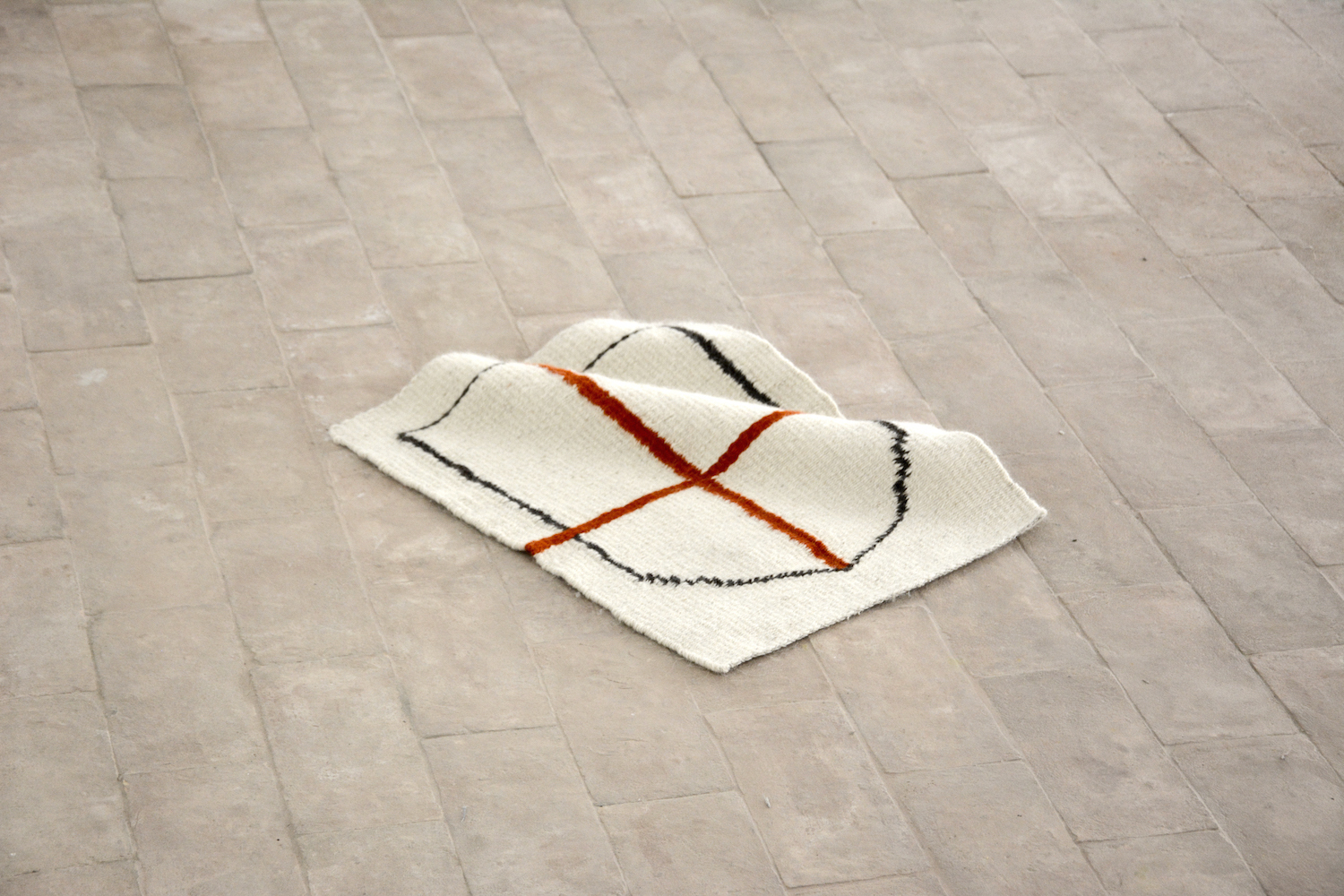
Double passage door, Installation view at Mahler&LeWitt Studios, Spoleto, 2020. Photo: Alice Mazzarella and Emanuele De Donno
Mountains are lost oceans, Installation view at Mahler&LeWitt Studios, Spoleto, 2020. Photo: Alice Mazzarella and Emanuele De Donno
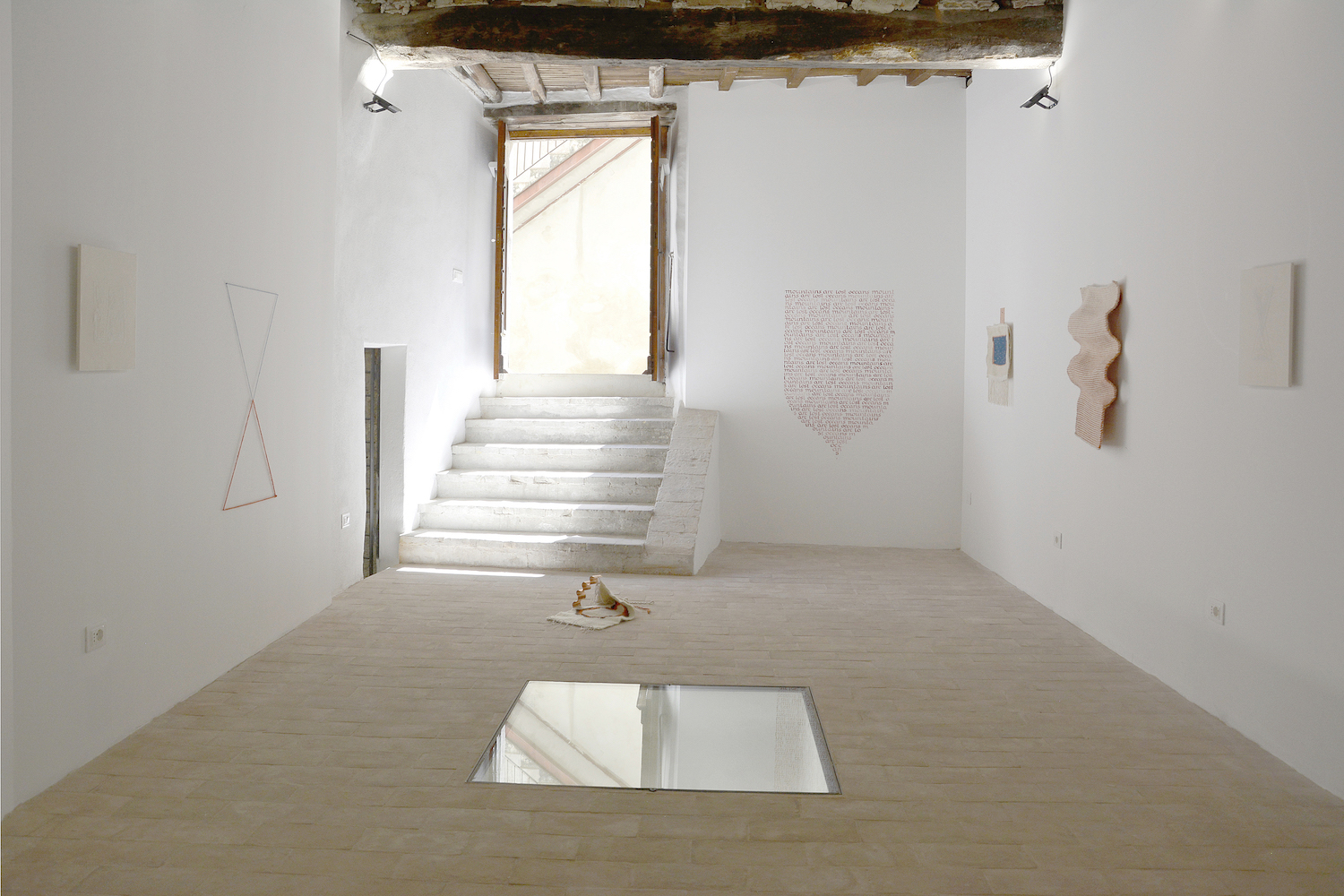
Mountains are lost oceans, Installation view at Mahler&LeWitt Studios, Spoleto, 2020. Photo: Alice Mazzarella and Emanuele De Donno
Brindiamo alle future ceneri!, Installation view at Mahler&LeWitt Studios, Spoleto, 2020. Photo: Alice Mazzarella and Emanuele De Donno
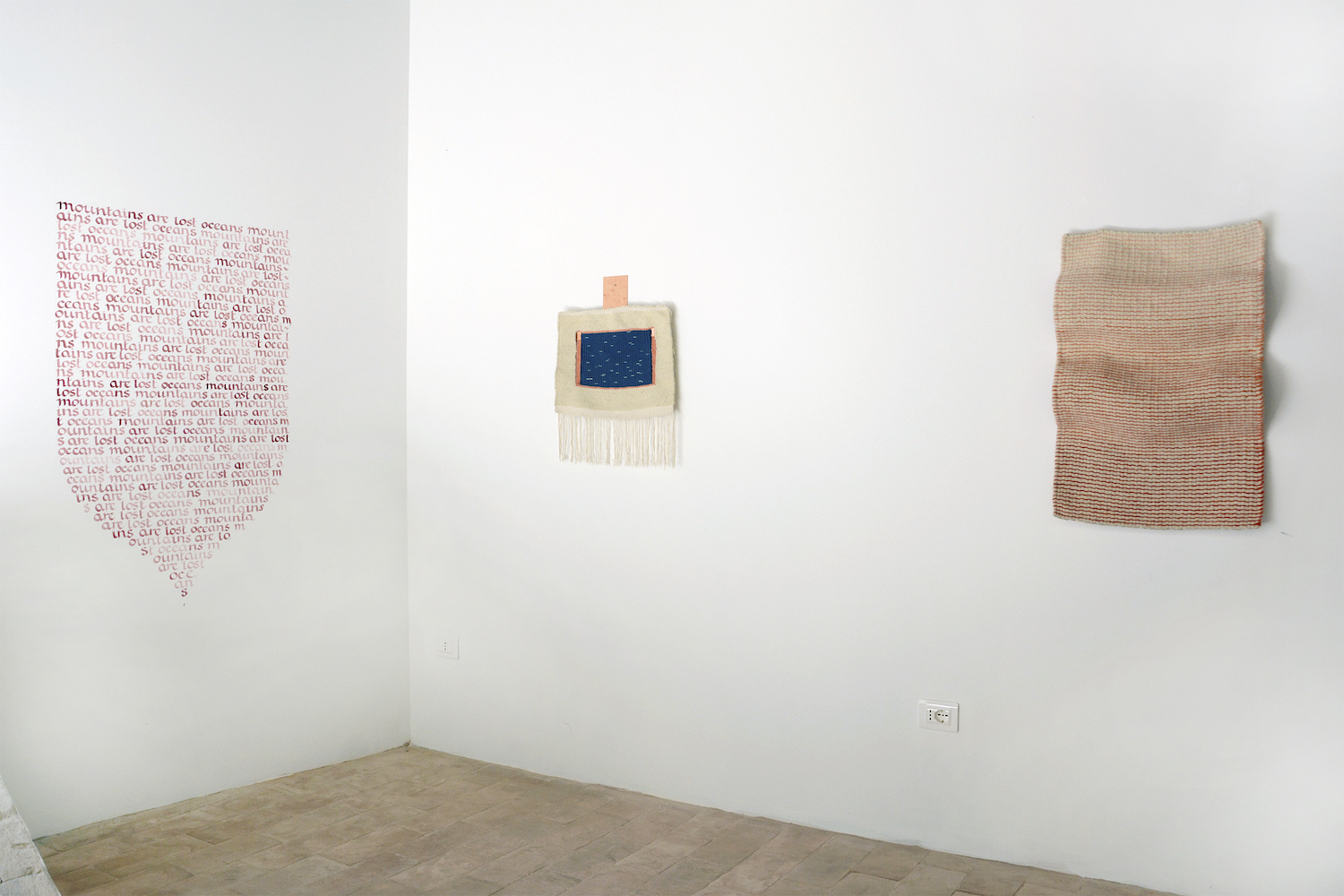
Mountains are lost oceans, Installation view at Mahler&LeWitt Studios, Spoleto, 2020. Photo: Alice Mazzarella and Emanuele De Donno
Mountains are lost oceans, Installation view at Mahler&LeWitt Studios, Spoleto, 2020. Photo: Alice Mazzarella and Emanuele De Donno
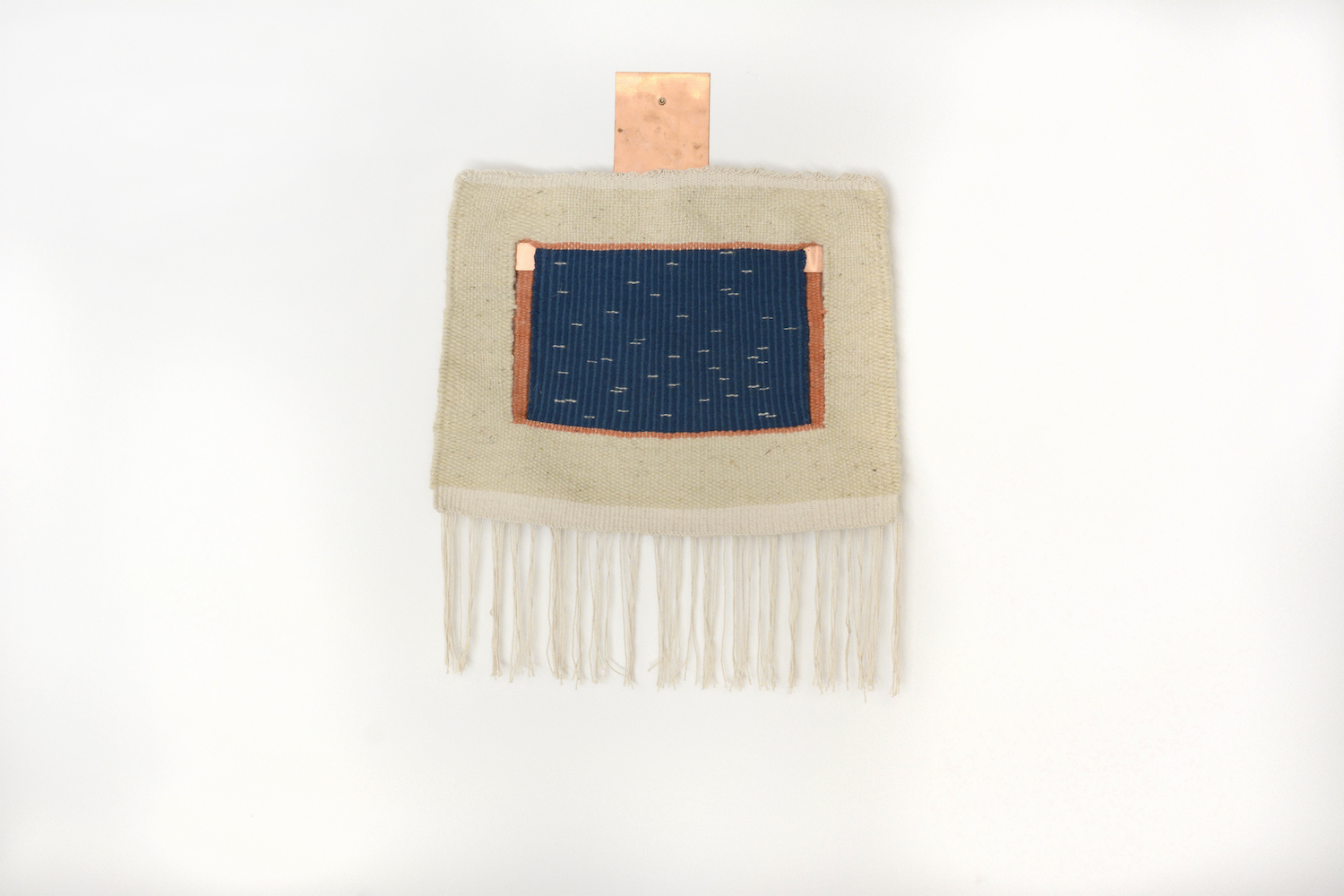
Mountains are lost oceans, Installation view at Mahler&LeWitt Studios, Spoleto, 2020. Photo: Alice Mazzarella and Emanuele De Donno
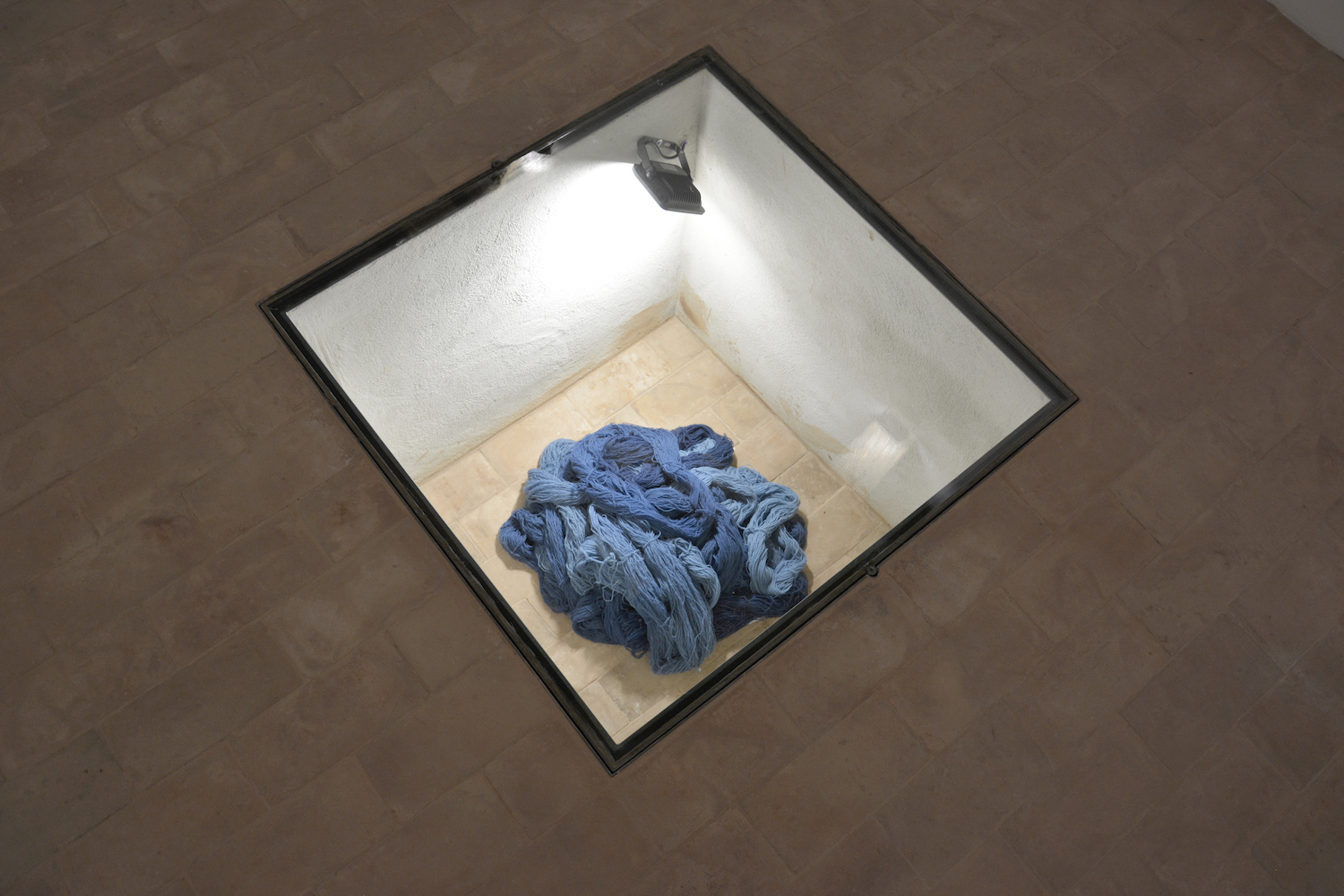
Mountains are lost oceans, Installation view at Mahler&LeWitt Studios, Spoleto, 2020. Photo: Alice Mazzarella and Emanuele De Donno
Mountains are lost oceans, Installation view at Mahler&LeWitt Studios, Spoleto, 2020. Photo: Alice Mazzarella and Emanuele De Donno
Mountains are lost oceans, Installation view at Mahler&LeWitt Studios, Spoleto, 2020. Photo: Alice Mazzarella and Emanuele De Donno
Mountains are lost oceans, Installation view at Mahler&LeWitt Studios, Spoleto, 2020. Photo: Alice Mazzarella and Emanuele De Donno
La differenza tra provvisorio e permanente non è chiara, Installation view at Mahler&LeWitt Studios, Spoleto, 2020. Photo: Alice Mazzarella and Emanuele De Donno